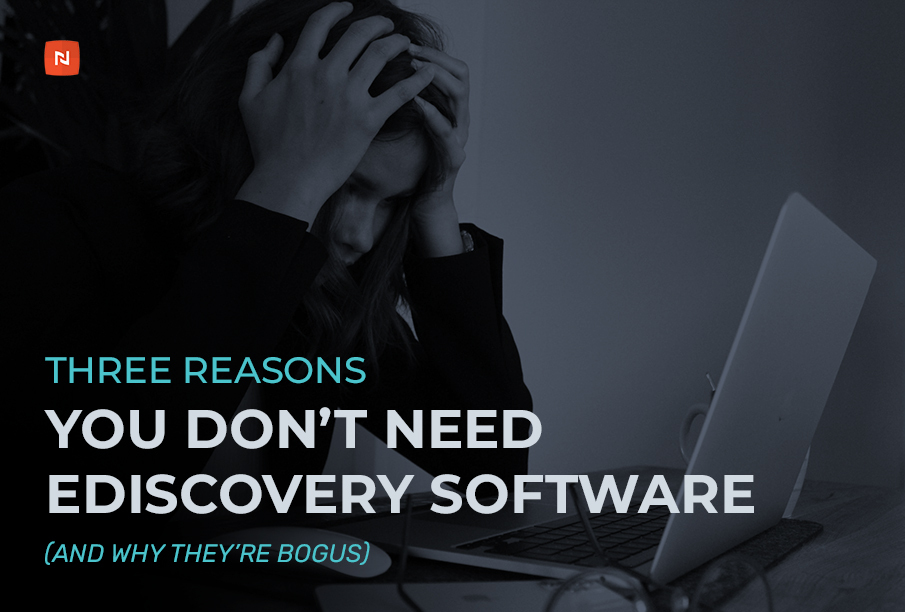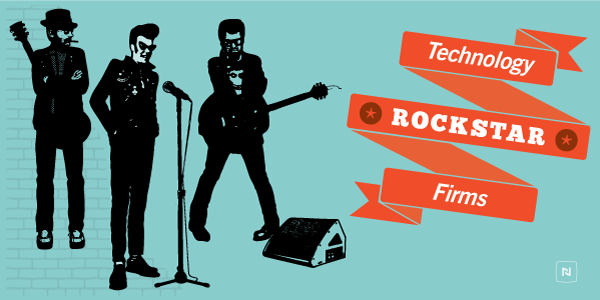When dealing with small cases, many law firms think they can manage ediscovery without specialized software. But cases of all sizes involve electronic evidence, and it’s important to handle it with care, as you would with any other evidence. Attorneys can manufacture any number of reasons to avoid using ediscovery software, but the reality is…
read moreSoftware built for lawyers by lawyers — a number of legal tech startups have recently etched this on their marketing sandwich boards. And, a recent thought-provoking post on Lawyerist.com suggested the underlying problem with legal technology is that there aren’t enough lawyers actually employed by companies in the legal tech space. Sam Harden writes that until we “see…
read moreWe covered some diverse ground on the Nextpoint blog in 2015, publishing 23 legal technology stories that ranged from dissecting new laws and trends, outlining best practices in eDiscovery, and teaching legal professionals how to work more efficiently with the aid of software. In case you missed them, here are summaries of our five most…
read moreIt’s a new age for lawyers. Simply providing great legal counsel isn’t enough any more (some would argue it never really was). Legal technology, including e-discovery technology and evidence management software, can provide a competitive advantage in a highly competitive marketplace. We’ve compiled seven traits of lawyers and law firms that successfully use legal technology…
read moreLawyers have taken a lot of criticism over the years for being slow to wrap their heads around eDiscovery. However, it turns out that lawyers aren’t the only ones having trouble with the issue. Silicon Valley, the hotbed of high-tech innovation, is now struggling to deal with electronic evidence in litigation. The Bay Area is…
read moreBefore coming to the legal technology industry, I spent five years in Silicon Valley during the dotcom boom. In Silicon Valley, I was used to dealing with early adopters and wannabe technology visionaries. These are people who loved technology in all of its forms, embraced change, and were desperately trying to look around the corner…
read moreWe’ve talked in the past about why legal technology services providers are primed for a newspaper-like contraction. Both newspapers and law firms deliver a text-based product, delivered by geographically-focused entities that largely rely on their reputation and institutional rules to protect their business models. And both never believed that Internet-based technologies would impact their industries.…
read moreHealthcare.gov is at the core a legal technology. It’s a technology designed to facilitate a legal process – the implementation of the Affordable Care Act. It is very analogous to the way ediscovery technology facilitates the requirements of the Federal Rules of Civil Procedure. What’s amazing about Healthcare.gov is that this “website” is the central…
read moreBack in January of 2010, we published a post that the legal industry could be in for a technology disruption on the scale of newspapers. The signs abound that a disruption is now underway. I recently ran across this chart in The Business Insider from famed internet analyst Henry Blodgett that provides vivid detail as…
read moreAccording to last years’ Midlevel Associates Survey at Law.com, associates were excited about all of the new gadgets and software being made available to them. For a brief period, it seemed like new devices, software, and even the latest Windows upgrade might finally give overworked associates the technology they needed. Predictably, this year’s survey found…
read more







